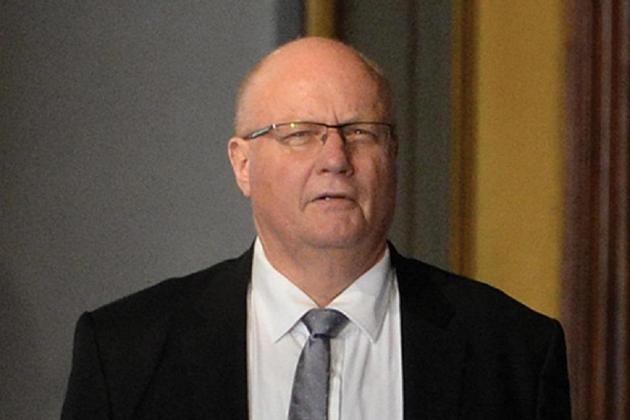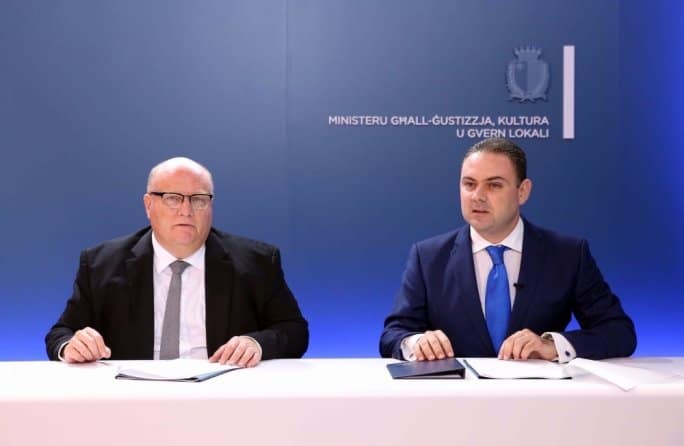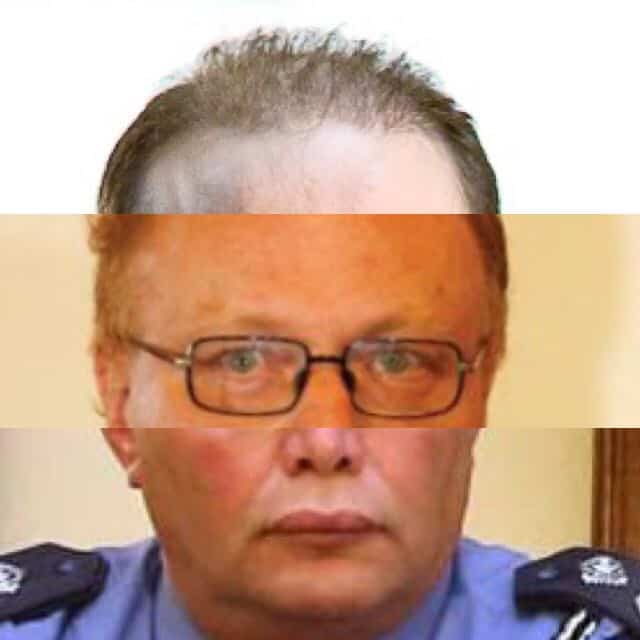
So, Peter Grech is leaving on 9 September. His resignation becomes effective on the 10th anniversary of his appointment. His selection was announced on 3 September 2010 and he took charge a few days after that.
The man is leaving office cloaked in a pitiful reputation. His collaboration with Joseph Muscat and his “kitchen cabinet”, now the euphemism du jour for the mafia, makes his departure comparable to the retirement of Francesco Schettino, the ignoble captain that abandoned the ship he had just drunkenly ran aground.
Someone I know squandered time from the Santa Marija holiday to look up the social security rules to check if the date of his resignation might have something to do with the man making sure he gets the most out of the social security system for the rest of his life. Pensions are worked out on the basis of income over the 10 years immediately preceding retirement. Truth be told, I doubt his pension is affected one way or another, given that for his previous job as deputy attorney general he probably earned more than the maximum pensionable income anyway.
But the man is made of such stuff that it is not unreasonable to think that while the country burns and the fire engine he was supposed to drive to its rescue gathers dust in his garage, all he’s working out is what his monthly pension will be.
His retirement on the 10th anniversary of his appointment is probably the crossing of a psychological line drawn in the sand that rolls in his skull, the leaping over of a final self-defined hurdle of a career in tatters, the only triumph to mitigate his inability to show anything of any value for his time occupying the most powerful unelected public office in the land.
His silence, his inertia, his bookish references to laws which he used to justify ignoring the obligations of his constitutional function, his acceptance of political wrongdoing, the way he comforted the police and given them pretext for their own inaction: these are the things he will be remembered for.
I will remember him arguing, if you want to call it that, at the Council of Europe in Strasbourg on why the government was right to refuse to open an independent public inquiry into the killing of Daphne Caruana Galizia. I didn’t see impressive legal argument, compelling oratory or even courage of conviction. I saw that day a quivering coward. You could measure the duration of his mediocre existence by counting the sweat buds on his forehead: indelible evidence of a fading half-life like the circles on a chopped tree trunk.

I remember how it felt that day to watch parliamentarians from across Europe, from the Atlantic to the Urals, marvel at Malta’s attorney general, wondering which hole he was found in before he was put in that job. Like Mr Universe judges adjusting their dropped jaws after seeing me in barely visible red and white briefs, all oiled up and challenging musclemen for the title, the incredulous Council of Europe MPs wondered if Peter Grech was the best Malta could find.
The cover for our humming and hawing, perspiring, albino slug of an Attorney General that day was the overgrown infant of a Justice Minister, Owen Bonnici. Between them they formed an unlikely Abbott and Costello duo of institutionalised inadequacy without the witty banter.
I will remember Peter Grech arguing, if so you could call it, telling Malta’s court why Repubblika had no right to complain on how Malta appointed its judges. Surely he must have thought that was a flimsy point to make. With his assistant dictating terms by whispering them through the back of his neck, he tried to pour plaster on his shaking wall of ineptitude. He argued with the court that the Venice Commission could well be ignored, its status purely consultative. The Venetians’ notion that Malta’s manner of appointing judges was not democratic was ludicrous, he insisted.
And you could see what he was really thinking. That the hand-picking of judges by criminal prime ministers was the only way his obsequious, slavish loyalty could ever be rewarded. That the unhindered and unchecked power of his masters to appoint him to the bench was the only way he’d ever get to be head boy and get his back on all the bad people who called him names in the school-yard. It was the only way he could survive his collaboration.
That ship, it would appear, has sailed.
In vain he defended Owen Bonnici when the justice minister called him and asked for a copy of a criminal inquiry report into the prime minister on the frivolous pretext that Joseph Muscat was his client. In vain he held the police back from taking action against politicians caught red handed setting up structures to launder their ill-gotten gains through Panama companies, New Zealand trusts and bank accounts so dirty even the UAE demurred on hosting them in its sewers.
And that’s just what we know of. So many strange things still need explaining. We still need to understand how financial intelligence agents accused by Edward Scicluna of ‘writing reports with the intention of leaking them’ were fired while Peter Grech ran the oversight board of the agency they worked for. We need to understand why no one, no one, no one of any significance was charged with money laundering in our courts of law during his tenure in spite of coming into office when Malta’s reputation for financial services was stellar and leaving it when that reputation is execrable. We need to understand how it can be that the European Central Bank intervened to shut down two Maltese banks for money laundering and yet not a single case has been filed for prosecution of the perpetrators of that money laundering.
We need to understand all of Peter Grech’s decisions scribbled in the musty files of the prosecutor’s office because the few we know he took do not add up. We have no law to challenge an attorney general’s inertia. There is nowhere we can go to have someone else look again at his decision not to prosecute someone and judging by the impunity enjoyed by the “kitchen cabinet” there are likely to have been several such decisions.
As with everything in this country then, we must wait for the magnanimity of the government. They can order an independent review of the conduct of the Attorney General’s office when Peter Grech was the source, rotting behind a cabinet the cleaner never reaches, of the funny smell in there. In spite of the stench, I wouldn’t hold my breath.
Dare we hope Peter Grech’s replacement will have more vertebrates than this particularly squishy slug, after Peter Grech finds his way out of our prosecutor general’s office between now and the 10th anniversary of when he first got in, marking a date that is only of significance to him?
Hope is a dangerous thing.
And yet it was hope in the face of the car bomb that had killed Daphne Caruana Galizia just six days earlier when protesters first called for Peter Grech’s resignation in October 2017. Chris Fearne was in the crowd in that protest hearing our pleas and he responded by saying we needed to trust Lawrence Cutajar and Peter Grech. Do remind me to stop taking advice from that man.
Peter Grech has been on our own version of Arya Stark’s nightly mantra, since that first march in Valletta. There’s something sweet about scratching another big red cross over another black name. The identikit has been finally broken down. Everybody out.

One final note of mild amusement about Adrian Delia crediting himself for Peter Grech’s departure.
Except that it gives Peter Grech something to chuckle about which is mildly annoying, the self-serving auto-congratulations in what passes for verse in Adrian Delia’s febrile mind, of our terminally irrelevant Leader of Opposition sound ever more like the hankerings of a witch doctor adjusting his cosmology to convince his sceptical congregation the earthquake, the plague and the overflying comet that hit the village were all part of his grand plan.
It will be nice to put a big red cross over his name too. Turning hope into time, patience and perseverance pays off. Ultimately the slugs will crawl out.